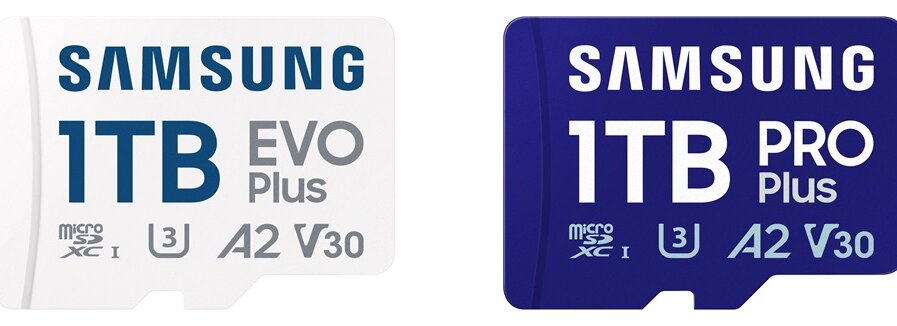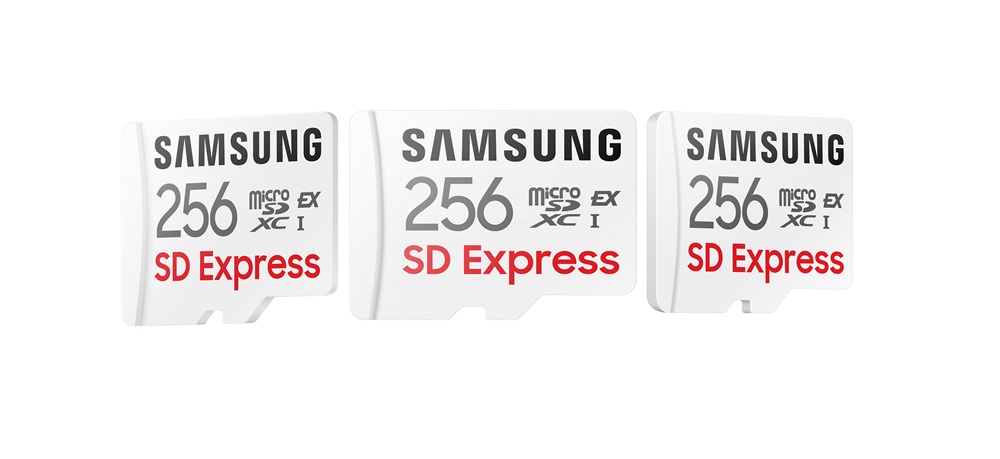
Samsung’s new microSD card bridging the gap for on-device AI advancements. (Source – Samsung).
Samsung introduces a groundbreaking microSD card for enhanced AI capabilities
- The new microSD card from Samsung transforms on-device AI and data-intensive applications.
- Samsung enables rapid transfers of large files like 8K videos and enhances mobile AI capabilities with its latest microSD cards.
- With its advanced microSD cards, Samsung addresses the growing demand for on-device AI, offering substantial performance improvements.
Samsung has announced the launch of its newest microSD cards, which are set to advance on-device AI capabilities significantly. By offering enhanced speeds, these microSD cards enable users to engage more effectively with AI-intensive applications, leveraging increased data processing directly on their devices.
The revolutionary SD 9.1 standard promises to redefine the landscape of digital storage by doubling the performance of existing top-tier microSD cards. This advancement would allow future SD cards to reach unprecedented speeds of up to 2GB/s, marking a significant milestone in storage technology.
Unveiled by the SD Association last year, the next generation of SD Express cards, which adhere to the SD 9.1 standard, would feature PCIe Gen4 technology. This significant upgrade was expected to elevate data transfer speeds to an impressive 1,969MB/s. Such speeds represent a more than twofold increase over the capabilities established by the initial microSD protocol in the SD 7.1 specification, setting a new benchmark for portable storage solutions. For context, the most advanced portable SSDs on the market today typically offer speeds around 1GB/s.
The new microSD from Samsung is fast
With these advancements, Samsung’s latest microSD cards are poised to become the fastest available, facilitating the swift transfer of sizable files. For instance, transferring a Blu-ray movie, which is roughly 25GB, could be accomplished in just 12.5 seconds. Moreover, these cards are designed to support the transfer of extensive 8K video files effortlessly, demonstrating their capacity to handle significant data demands.
Further enhancing its product lineup, Samsung has made strides in developing a 256GB SD Express microSD card and has commenced mass production of a 1TB microSD card variant. The company anticipates that the 256GB version will be available later this year, with the 1TB model expected to launch in the third quarter of 2024.
Hangu Sohn, vice president of the memory brand product biz team at Samsung Electronics, highlighted the impact of these new microSD cards on mobile computing and on-device AI. He noted, “Despite their tiny size, these memory cards deliver powerful SSD-like performance and capacity to help users get more out of demanding modern and future applications.”

Samsung announces new microSD that may have been developed for Nintendo. (Source – X).
The genesis of Samsung’s high-performance microSD
This development marks a significant achievement in the industry, with Samsung introducing a high-performance microSD card based on the advanced SD Express interface. This initiative stemmed from a collaborative effort to design a product tailored to a customer’s requirements.
Samsung asserts that the 256GB SD Express microSD card will deliver read speeds of up to 800MB/s. This performance significantly surpasses that of SATA SSDs and traditional UHS-1 memory cards, substantially improving speed and efficiency. Samsung has incorporated dynamic thermal guard technology to address potential overheating issues associated with such high-speed operation, ensuring the cards maintain optimal operating temperatures.
As the demand for on-device AI continues to grow, enabling users to perform generative AI tasks directly on their devices without relying on cloud-based API calls, the importance of microSD cards is increasingly recognized. These cards provide a viable means to expand mobile device memory, facilitating more complex AI operations. In less portable settings, such as those involving chatbots or text-to-image generation, AI services still depend on the extensive storage capacities offered by data centers or cloud services.

Samsung has started sampling its 256-gigabyte (GB) SD Express microSD card (Source – Samsung)
Despite some ambiguity surrounding the concept of “on-device AI,” Samsung and other companies are moving forward with the introduction of “AI phones.” These devices are expected to feature capabilities such as speech recognition, real-time call translation, and photo editing software that relies on data-intensive algorithms without necessitating significant processing power.
But BGR has highlighted a notable paradox in this development: despite Samsung’s promotion of these advanced microSD cards as essential for the future of mobile computing and on-device AI applications, its latest Galaxy S24 flagship series, which boasts AI capabilities, lacks microSD storage support. This decision aligns with a broader trend among flagship Android manufacturers, who have gradually phased out microSD support due to concerns over performance, waterproofing, and the optimization of internal space for larger batteries.
The 256GB SD Express microSD card from Samsung addresses these performance concerns head-on, offering speeds that far exceed those of traditional microSD cards. This breakthrough suggests a potential pathway for reintegrating microSD support in future devices. Additionally, the card benefits from Samsung’s Dynamic Thermal Guard technology, which ensures consistent performance over extended periods.
While the 1TB microSD card variants may not achieve the same speeds as their SD Express counterparts, they are distinguished by their enhanced durability. These cards are designed to withstand water exposure, extreme temperatures, drops, and wear and offer protection against X-rays and magnets. These robust storage solutions are available in capacities of up to 512GB.
A look ahead: pricing and availability
Samsung has not yet disclosed pricing details for these innovative products. By comparison, SanDisk’s 1TB microSD cards are priced between US$75 and US$120, depending on the model. This pricing strategy suggests that Samsung’s offerings may follow a similar range, although the 256GB SD Express card is expected to command a premium due to its superior performance.
In terms of storage options for the Galaxy S24 series, these devices offer generous internal storage capacities despite the absence of microSD card support. The base model starts at 128GB, with the Galaxy S24 Plus and S24 Ultra models beginning at 256GB. Samsung has further enhanced the value proposition of these models by offering a promotion that doubled the storage for customers who preordered either of the two higher-end models.
READ MORE
- Data Strategies That Dictate Legacy Overhaul Methods for Established Banks
- Securing Data: A Guide to Navigating Australian Privacy Regulations
- Ethical Threads: Transforming Fashion with Trust and Transparency
- Top 5 Drivers Shaping IT Budgets This Financial Year
- Beyond Connectivity: How Wireless Site Surveys Enhance Tomorrow’s Business Network


